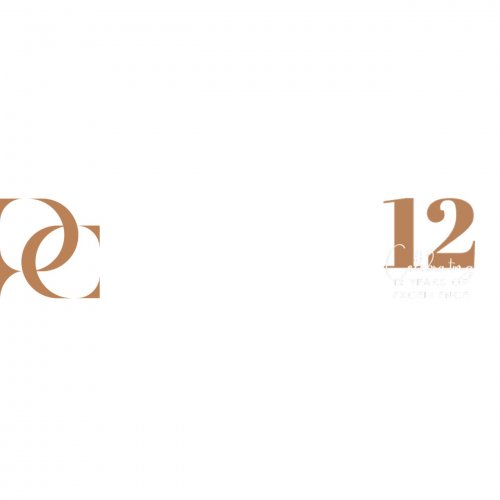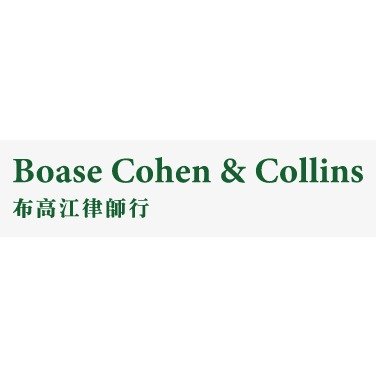Best Job Discrimination Lawyers in Hong Kong
Share your needs with us, get contacted by law firms.
Free. Takes 2 min.
Or refine your search by selecting a city:
List of the best lawyers in Hong Kong
About Job Discrimination Law in Hong Kong
Job discrimination in Hong Kong is primarily governed by the Equal Opportunities Commission (EOC), which enforces laws designed to promote equality and combat discrimination in the workplace. The laws focus on ensuring that employees and job applicants are not unfairly discriminated against based on personal attributes such as sex, disability, family status, and race. The primary statutes addressing these issues include the Sex Discrimination Ordinance, Disability Discrimination Ordinance, Family Status Discrimination Ordinance, and the Race Discrimination Ordinance. These laws aim to create an inclusive work environment where all individuals have equal opportunities based on their abilities rather than irrelevant personal characteristics.
Why You May Need a Lawyer
Individuals might require legal assistance in several scenarios related to job discrimination in Hong Kong. Common situations include being unfairly treated or overlooked for promotions due to race, gender, or other protected attributes, experiencing harassment or victimization at work, facing discriminatory hiring practices, or being unfairly terminated due to personal characteristics protected by law. In such circumstances, a lawyer can provide guidance on your rights, help collect evidence, offer representation in negotiations or court proceedings, and ensure your case is presented comprehensively and accurately.
Local Laws Overview
The legal framework in Hong Kong aimed at combating job discrimination comprises four key ordinances:
1. Sex Discrimination Ordinance (SDO): Prohibits discrimination on the grounds of sex, marital status, and pregnancy. It also covers sexual harassment in the workplace.
2. Disability Discrimination Ordinance (DDO): Protects individuals from discrimination, harassment, and vilification based on disability and the use of assistive devices or presence of service animals.
3. Family Status Discrimination Ordinance (FSDO): Outlaws discrimination against an individual because of their family status, which includes being responsible for immediate family members.
4. Race Discrimination Ordinance (RDO): Prevents discrimination on the basis of race, ethnicity, and national origin.
Frequently Asked Questions
What constitutes job discrimination in Hong Kong?
Job discrimination involves unfair treatment of employees or job applicants based on personal attributes like sex, race, disability, or family status, which are protected under specific anti-discrimination ordinances in Hong Kong.
Can I file a discrimination complaint if I’m harassed at work?
Yes, if you experience harassment at work based on a protected characteristic, you can file a complaint with the Equal Opportunities Commission or seek legal assistance to take further action.
What is the role of the Equal Opportunities Commission?
The EOC is a statutory body responsible for enforcing anti-discrimination laws, promoting equality, and handling discrimination complaints in Hong Kong.
How long do I have to file a discrimination claim?
Discrimination claims must generally be filed within 12 months of the incident. However, it's advisable to seek legal counsel as soon as possible to ensure timely action.
Do anti-discrimination laws in Hong Kong cover religious discrimination?
As of now, Hong Kong’s anti-discrimination laws do not specifically cover religious discrimination. However, employers are encouraged to foster an inclusive environment for all.
Does job discrimination only occur during hiring?
No, job discrimination can occur at any stage of employment, including hiring, promotions, compensation, job assignments, and termination.
What evidence do I need to prove discrimination?
Evidence may include emails, witness testimonies, recorded conversations, or any other documentation that supports your claim of discrimination.
Can my employer retaliate against me for making a discrimination complaint?
Retaliation is illegal under Hong Kong’s anti-discrimination laws. Victims of retaliation for filing a complaint can also seek legal remedy.
How do I seek help from a lawyer?
Contact a legal professional specializing in employment law or anti-discrimination cases. They can provide advice and represent you in proceedings if necessary.
Are there exceptions where discrimination is allowed?
In some cases, exemptions allow differential treatment based on necessary job requirements, such as language proficiency, but these must be objectively justified and relevant.
Additional Resources
For those seeking further assistance, consider reaching out to the following resources:
- Equal Opportunities Commission (EOC): Provides counseling and handles complaints related to discrimination.
- Labour Department's Labour Relations Division: Offers information and assistance regarding employment disputes.
- Community Legal Information Centre (CLIC): Offers free legal information on various topics, including employment law.
Next Steps
If you believe you are experiencing job discrimination, start by documenting the incident(s) carefully. Consider speaking to your human resources department if applicable. Contact the EOC or seek the assistance of a qualified lawyer specializing in employment discrimination. A lawyer can provide expert advice, assess the merit of your case, help collect necessary evidence, and represent you in negotiations or legal proceedings if your complaint warrants such action. Prioritize finding a legal professional with relevant experience to ensure the best possible outcome for your case.
Lawzana helps you find the best lawyers and law firms in Hong Kong through a curated and pre-screened list of qualified legal professionals. Our platform offers rankings and detailed profiles of attorneys and law firms, allowing you to compare based on practice areas, including Job Discrimination, experience, and client feedback.
Each profile includes a description of the firm's areas of practice, client reviews, team members and partners, year of establishment, spoken languages, office locations, contact information, social media presence, and any published articles or resources. Most firms on our platform speak English and are experienced in both local and international legal matters.
Get a quote from top-rated law firms in Hong Kong — quickly, securely, and without unnecessary hassle.
Disclaimer:
The information provided on this page is for general informational purposes only and does not constitute legal advice. While we strive to ensure the accuracy and relevance of the content, legal information may change over time, and interpretations of the law can vary. You should always consult with a qualified legal professional for advice specific to your situation.
We disclaim all liability for actions taken or not taken based on the content of this page. If you believe any information is incorrect or outdated, please contact us, and we will review and update it where appropriate.
Browse job discrimination law firms by city in Hong Kong
Refine your search by selecting a city.
















